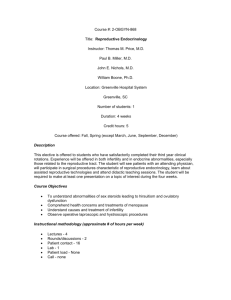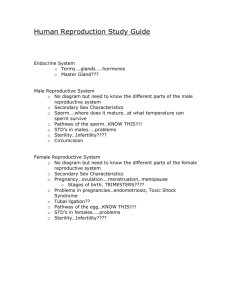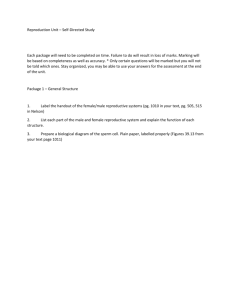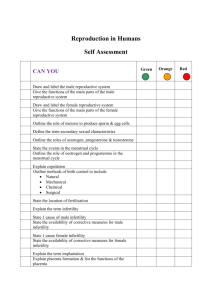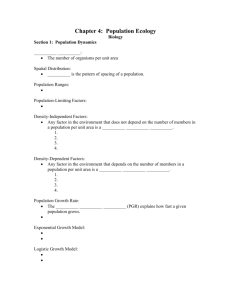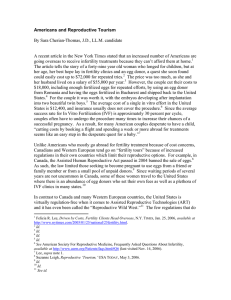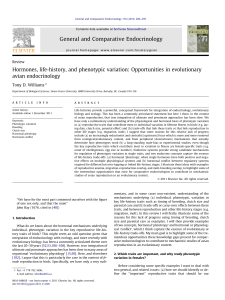Reproductive Endocrinology and Infertility Schedule of Conferences, Courses, and Meetings
advertisement
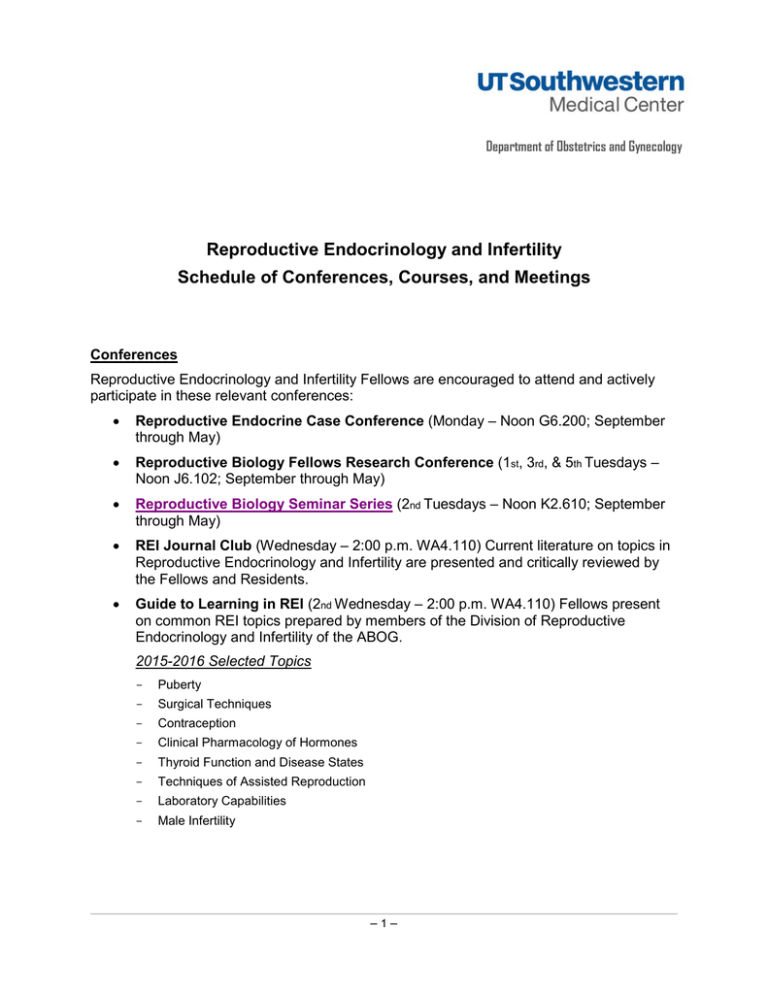
Department of Obstetrics and Gynecology Reproductive Endocrinology and Infertility Schedule of Conferences, Courses, and Meetings Conferences Reproductive Endocrinology and Infertility Fellows are encouraged to attend and actively participate in these relevant conferences: • Reproductive Endocrine Case Conference (Monday – Noon G6.200; September through May) • Reproductive Biology Fellows Research Conference (1st, 3rd, & 5th Tuesdays – Noon J6.102; September through May) • Reproductive Biology Seminar Series (2nd Tuesdays – Noon K2.610; September through May) • REI Journal Club (Wednesday – 2:00 p.m. WA4.110) Current literature on topics in Reproductive Endocrinology and Infertility are presented and critically reviewed by the Fellows and Residents. • Guide to Learning in REI (2nd Wednesday – 2:00 p.m. WA4.110) Fellows present on common REI topics prepared by members of the Division of Reproductive Endocrinology and Infertility of the ABOG. 2015-2016 Selected Topics - Puberty - Surgical Techniques - Contraception - Clinical Pharmacology of Hormones - Thyroid Function and Disease States - Techniques of Assisted Reproduction - Laboratory Capabilities - Male Infertility –1– • University Lecture Series (Wednesday 4:00 p.m., NB2.102) Weekly lectures given by national or international visiting Professors. Topics related to clinical and basic sciences. • Daily Lectures and Grand Rounds are given by different Departments of the Medical School; published in a monthly calendar of events. • Participation in Post Graduate Course in Obstetrics and Gynecology; sponsored by UT Southwestern Medical School. Courses The program includes participation in post-graduate courses sponsored by UT Southwestern Medical School. One graduate-level course is required. I. Conceptual Biostatistics for the clinical Investigator – DCS 5309 This course explains fundamental statistical principles and focuses on explaining the appropriate scientific interpretation of statistical tests, rather than the mathematical calculation of the tests themselves. The course covers topics typically used in biomedical publications, including data description, summary statistics, p values and confidence intervals, contingency tables, sensitivity and specificity of laboratory tests, parametric and non-parametric tests, analysis of variance, correlation, regression, and statistical power, and sample size estimation. (3 credits). II. Biostatistics Laboratory I – DCS 5101 This course is an introduction to biostatistical methods through case studies, conceptualizing research questions, and collecting and preparing data. As a part of this lab the student will collect data (or use current study data), create a small dataset, perform an analysis, and write up results. (3 credits). Clinical Research Design & Analysis I – DCS 5301 Clinical Research Design & Analysis is designed to teach basic and intermediate level principles in research design, formulation of the research question, identifying primary and secondary hypotheses, types of experimental structures, use of control groups and pre-specified hypotheses, surrogate measurements, analysis of incomplete data, meaning of P values and confidence intervals, identification of bias, and flaws in study design. (3 credits) Epidemiological Concepts and Principles I – DCS 5307 Population sampling; measures of disease frequency and association; standardized rates/ratios; age; cohort and period analysis; validity and reliability; selection, measurement and confounding biases; sensitivity, specificity and predictive value; risk ratios; odds ratios and number needed to treat; receiver operator curves and diagnostic test performance (3 credits) Reproductive Endocrinology and Infertility – Schedule of Conferences, Courses, and Meetings Department of Obstetrics and Gynecology – UT Southwestern Medical Center Page 2 of 2
